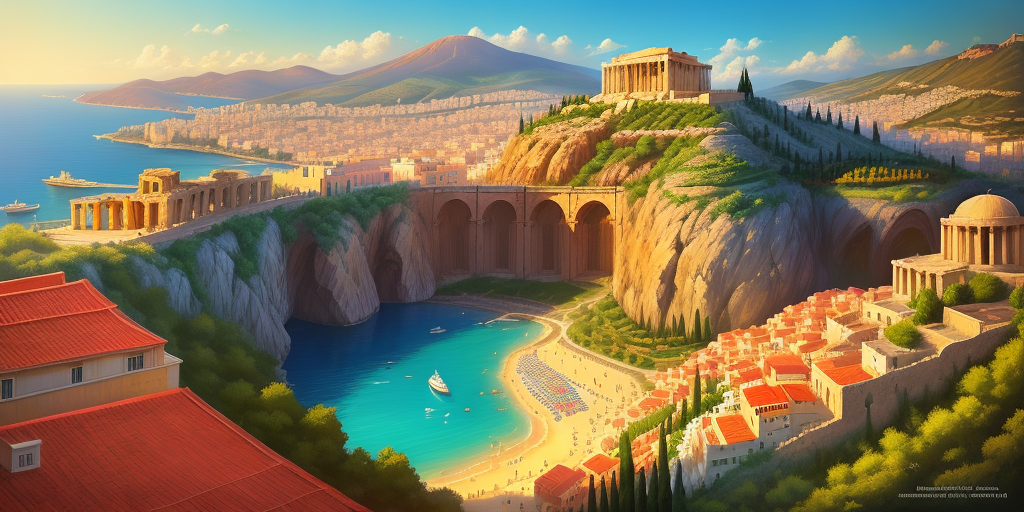
The Choice of Building Materials in Greek Apartments: A Blend of Tradition and Practicality
The construction of apartments in Greece predominantly utilizes materials such as concrete, stone, and tougher substances, presenting a departure from the prevalent use of wood in many other parts of the world. This distinction can be attributed to a combination of historical, cultural, and practical factors that shape the architectural landscape in Greece.
1. Climatic Considerations
- Mediterranean Climate: Greece’s Mediterranean climate, characterized by hot and dry summers, makes the use of materials like concrete and stone advantageous. These materials offer better thermal mass, helping to regulate indoor temperatures and provide insulation.
2. Historical Influence
- Ancient Building Traditions: Greece has a rich history of architecture dating back to ancient civilizations. Traditional Greek buildings, such as those in Athens or on the islands, often employed stone and masonry due to their durability and availability.
3. Seismic Activity
- Earthquake Prone Regions: Greece is located in a seismically active region. The choice of robust materials like concrete and stone is a response to the need for structures that can withstand earthquakes and ensure the safety of occupants.
4. Availability of Materials
- Abundance of Stone: Greece has an abundant supply of natural stone, and this availability has influenced construction practices over the centuries. Locally sourced stone provides not only durability but also a connection to the country’s geological landscape.
5. Cultural Aesthetics
- Architectural Aesthetics: The use of stone and concrete aligns with the architectural aesthetics prevalent in Greek culture. Many buildings, both historical and contemporary, showcase a harmonious blend of tradition and modernity through the use of these durable materials.
6. Regulatory Standards
- Building Codes: Greece has established building codes and standards that take into account the country’s specific environmental and geological conditions. These codes often guide architects and builders toward materials that ensure structural integrity.
7. Longevity and Maintenance
- Durability: Concrete and stone are known for their durability and longevity. In a country with a rich historical heritage, the emphasis on long-lasting structures is not only practical but also a nod to preserving cultural identity.
- Low Maintenance: These materials generally require lower maintenance compared to wood, especially in an environment where exposure to the sun, sea, and occasional storms can impact the longevity of structures.
8. Fire Safety
- Resistance to Fire: While wood is commonly used in construction globally, the choice of fire-resistant materials like concrete and stone in Greece is a practical consideration. This is particularly relevant in regions where the risk of wildfires may pose a threat to wooden structures.
9. Urbanization and Modernization
- Urban Development: In urban areas like Athens and Thessaloniki, modernization and urban development often favor the use of contemporary construction materials. While stone and concrete maintain a presence, modern apartments may also incorporate a mix of materials for aesthetic and functional reasons.
10. Architectural Heritage Preservation
- Preserving Tradition: The choice of materials reflects a desire to preserve and showcase Greece’s architectural heritage. Modern constructions often draw inspiration from historical structures, maintaining a sense of continuity in the built environment.
In conclusion, the use of concrete, stone, and tougher materials in Greek apartments is a nuanced combination of environmental considerations, historical influences, and practical necessities. The resulting architectural landscape not only aligns with the climatic and geological conditions of the region but also reflects a deep-rooted connection to Greece’s rich cultural and historical legacy.


No Comment Found.